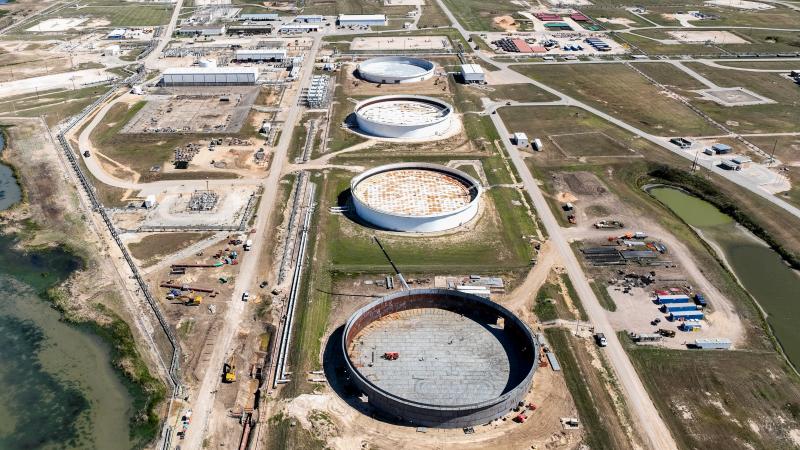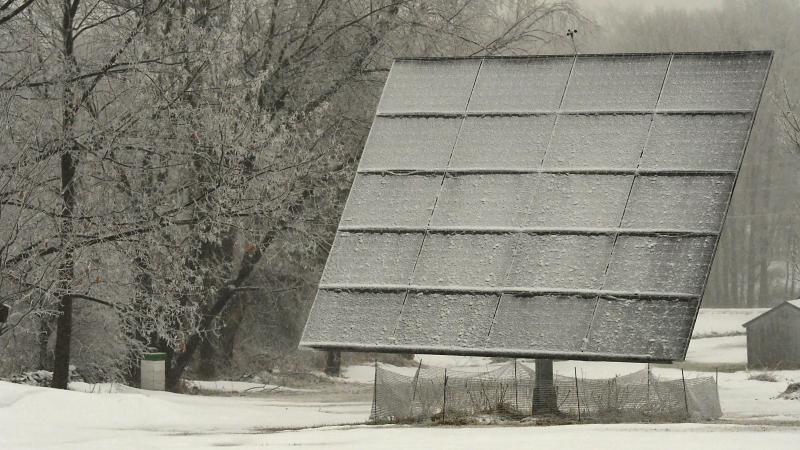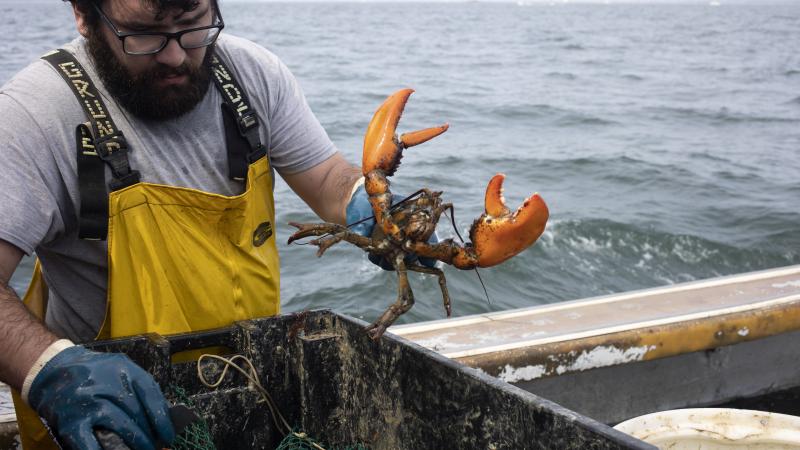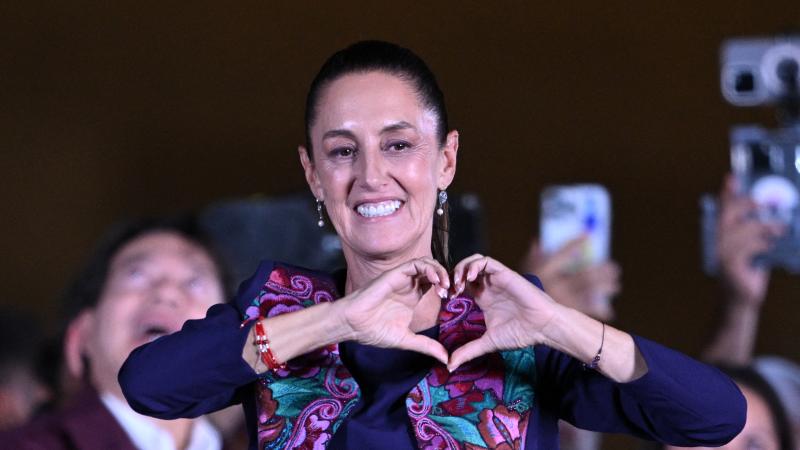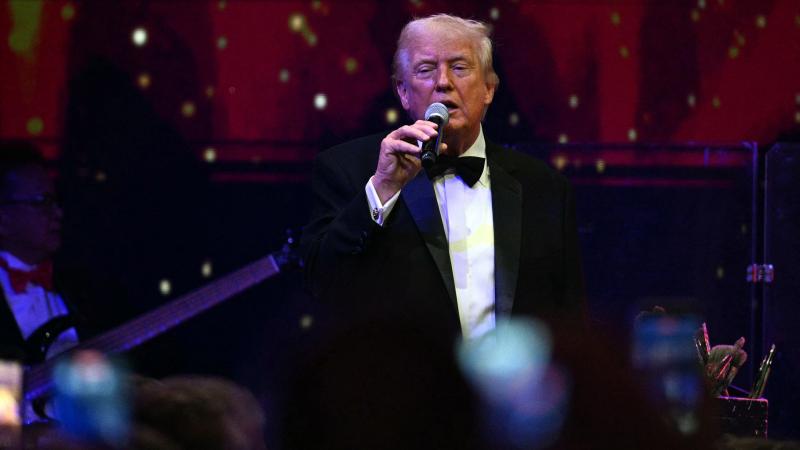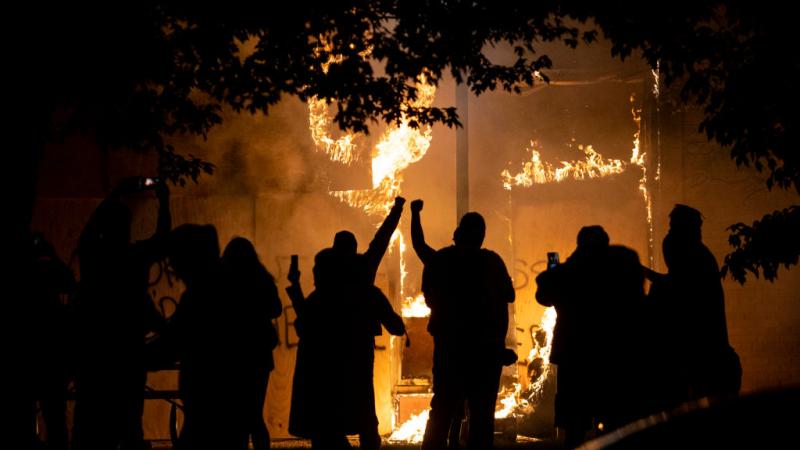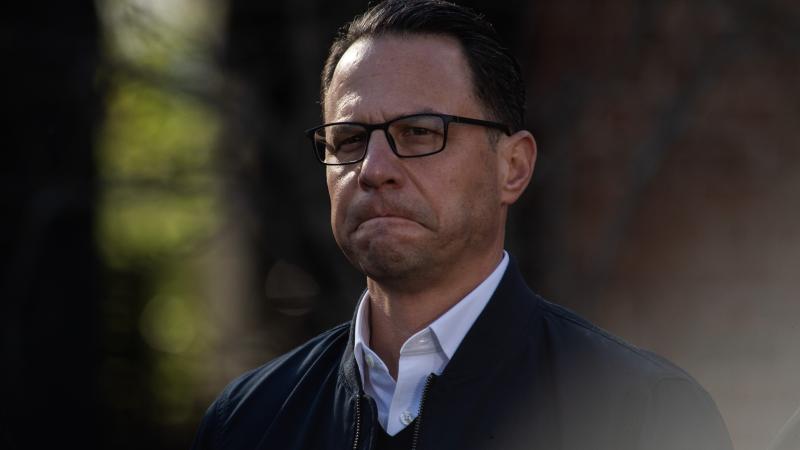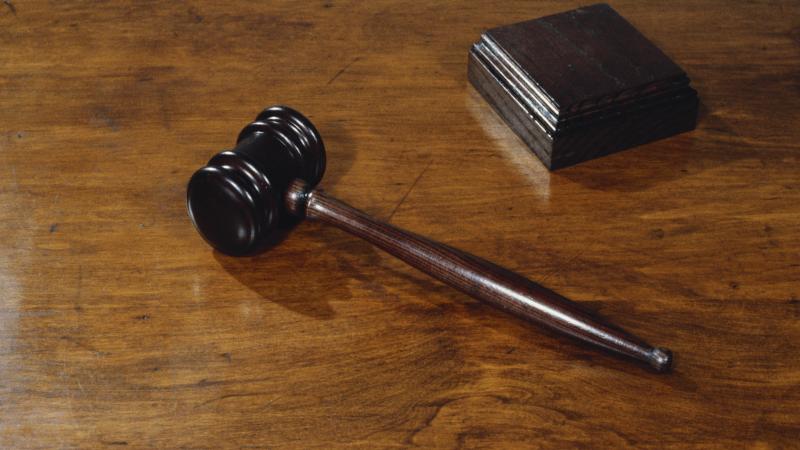Trump’s DOJ sues states trying to extract billions from ‘Big Oil’ with retroactive fines, lawsuits
Citing President Donald Trump’s executive order titled “Protecting American Energy from State Overreach,” Attorney General Pamela Bondi said in a statement that these laws and lawsuits “threaten American energy independence and our country’s economic and national security.” But they may make some lawyers very rich obstructing the President's policy goals.
The Department of Justice filed lawsuits Thursday against Hawaii and Michigan over planned climate-based litigation against fossil fuel companies. The DOJ also filed separate lawsuits against New York and Vermont over those states’ “climate superfund” laws, that levy fines against fossil fuel companies for producing legal products that consumers willingly and needfully purchase.
Citing President Donald Trump’s “Protecting American Energy from State Overreach” executive order, Attorney General Pamela Bondi said in a statement that these laws and lawsuits “threaten American energy independence and our country’s economic and national security.”
States, cities and anti-fossil fuel nonprofits like Our Children’s Trust have filed dozens of climate lawsuits against a plethora of oil companies and industry groups, demanding billions in damages for what the plaintiffs claim is “extreme weather” the companies’ emissions have caused. The DOJ lawsuits signal that the Trump administration intends to push back against this wave of lawfare, as it's often called, as part of Trump’s “unleashing American energy” agenda.
Our Children's Trust is a Eugene, Oregon, based 501(3) with a war-chest of more than $5 million as of 2023, according to their latest IRS filing. That same filing shows that in 2023, it was doused with a firehouse of taxpayer cash through government grants, as much as $4.5 million dollars. The WHOIS database of internet domain names shows that the charity hides from the public their website's ownership and control, which is managed in Reykjavík, Iceland.
Lawfare works both ways
“What's good for the goose is good for the gander. There's coordinated action against the oil industry. So, I don't see anything wrong with there being coordinated action for the oil industry,” Steve Milloy, senior legal fellow with the Energy and Environmental Legal Institute and publisher of “JunkScience.com,” told Just the News.
The lawsuits against Hawaii and Michigan were preemptive strikes against the states’ lawfare plans to sue oil companies for damages allegedly caused by climate change. Last year, Michigan Attorney General Dana Nessel, a Democrat, issued a request for proposals for special assistant attorneys general to help the state pursue climate litigation.
Earlier this week, Hawaii Gov. John Green, also a Democrat, told KHON2 News that oil companies were responsible for wildfires and other natural disasters impacting the island, and the state would be filing a lawsuit on Thursday looking to recoup the damages Green claims the companies caused. According to the Associated Press, the lawsuit targets “seven groups of affiliated fossil fuel companies and the American Petroleum Institute.”
The nearly identical lawsuits the DOJ filed Thursday against Hawaii and Michigan argue that the states are attempting to regulate greenhouse gas emissions, but the Clean Air Act limits states’ authority to enforce air pollution on in-state sources, because greenhouse gas emissions are a cross-border problem as well as a national concern.
The specific theories upon which Michigan and Hawaii plan to sue are known only to the states, but Bondi's lawsuits say “the goal of the lawsuit is clear — to extract large sums of money from fossil fuel companies for purportedly causing climate change impacts.”
Green confirmed this was the goal of the Hawaii lawsuit in his interview with KHON2. “We’re able to weather all of these costs, but it would have been nice to have a couple billion extra dollars from the fossil fuel companies,” the governor said.
Ex-post facto fines totaling billions
In May 2024, Vermont passed its “superfund” law, which will charge oil companies potentially billions of dollars based on an assessment by the state treasurer of the alleged financial impact of emissions from oil companies as far back as 1995 and 2024. New York is hoping to get $75 billion for its “superfund” law.
The DOJ lawsuits against Vermont and New York also argue the states are overstepping their jurisdiction. The state laws impose “self-described retroactive fines on traditional energy producers for their purported past contributions to greenhouse-gas emissions, which were lawful operations endorsed and even promoted by both federal and state authorities,” the lawsuits argue.
The lawsuits also point out that the states are enjoying the benefits of fossil fuels while trying to punish those companies for providing the products from which their residents benefited. New York and Vermont seek “to have [their] cake and eat it too, by both reaping the benefits of affordable and reliable fuel, yet penalizing the entities that help produce such fuel billions of dollars for their trouble,” the lawsuits state.
A coalition of attorneys general in two dozen states led by West Virginia Attorney General JB McCuskey also filed a lawsuit Thursday against Vermont’s superfund law. McCuskey also led a coalition of 22 states in February suing New York over its superfund law.
Both lawsuits use similar language to argue that the states are trying to seize control of the nation’s energy industry, even if one of the targeted companies never operated in those states. The money these laws are extracting from companies would ultimately be paid by consumers, the lawsuits state.
“This shakedown of the companies who built America is unfathomable, unconstitutional and a slap in the face to all of the hardworking men and women who built this country and continue working to keep the lights on,” McCuskey said in a statement.
"Legal spaghetti": Nuisance laws, consumer protection and RICO laws
During a webinar last month held by the Washington Legal Foundation, a panel of legal experts discussed the various approaches these litigants are taking to take down energy producers, as well as other large emitters.
The Supreme Court last year asked the Biden administration’s DOJ to weigh in on challenges to state and local climate lawsuits. The Biden administration's Solicitor General, Elizabeth Prelogar, submitted briefs in December, arguing that the justices should reject the appeal from energy companies and allow the cases to play out in state courts before the high court reviews them. The high court did just that, which left these cases to wind through state courts for the time being.
“There are about three dozen of these lawsuits around the country, some by local governments — like towns and by counties — some by states. And it's starting to look a little bit like legal spaghetti being thrown at the wall to see what sticks,” Philip Goldberg, special counsel with the Manufacturers’ Accountability Project said in the webinar.
Goldberg outlined the legal theories being deployed in these cases. Some of the lawsuits, Goldberg said, use public nuisance laws, the definitions of which vary from state to state. Goldberg explained that that legal strategy hasn’t proven successful, as the purpose of nuisance lawsuits is to protect the public, which means stopping things ruled to be a nuisance and a threat to the public.
“None of these cases are about that. A lot of them say that, ‘we're not trying to regulate emissions. We're not trying to do anything about climate change. We just want money because we're going to have to do climate adaptation locally,’” Goldberg said, which is not the public policy driving long-established nuisance laws.
Another approach is consumer protection claims, which argue that oil companies deceived the public about their products. This generally follows the “Exxon knew” argument that says oil companies knew about climate change and tried to hide it from the public. Critics of these claims have pointed out that oil companies knew no more than any other researchers, and what is characterized as deception and denial is the debate that was going on among all the researchers looking at the issue.
A problem with using consumer protection law, Goldberg explained, is that many of the deceptions the lawsuits are claiming happened 20 or 30 years ago, and those laws usually have a statute of limitations on such claims. New York, for example, limits such claims to three years.
Puerto Rico recently filed a climate lawsuit using the Racketeer Influenced and Corrupt Organizations Act (RICO), a law passed in the 1970s to fight organized crime. The law allows parties to sue over coordinated activities that are part of a criminal enterprise. The territory dropped the lawsuit on Friday, The Guardian reported. No reason was given, but the move comes just two days after the Trump administration filed its lawsuits against four states.
Winding through various state courts
In her brief, Solicitor General Prelogar noted in 2024 that the cases may ultimately prevail in state courts. “To be sure, petitioners may ultimately prevail on their contention that respondents’ claims are barred by the Constitution … to the extent the claims rely on conduct occurring outside Hawaii,” Pregolar wrote.
Many of these lawsuits have been shot down in state courts, but critics of these actions have pointed out that the motivations of these lawsuits are political. Such suits are commonly referred to as "lawfare." To those ends, a courtroom win isn’t required to drive up energy costs and cause problems and expenses for the targeted companies.
Footing the lawfare bill
There’s also plenty of funding to support the litigation. In 2020, the Manufacturers’ Accountability Project published a report detailing the history of the wave of climate lawsuits, as well as the complex web of dark money supporting the litigation. The web of funding, a Fox News report found, includes the Leonardo DiCaprio Foundation, the Emmett Foundation, the MacArthur Foundation, William and Flora Hewlett Foundation, the Rockefeller Brothers Fund and JPB Foundation.
“It's this huge conspiracy between the blue states, green groups and dark money funders,” Milloy with the Energy and Environmental Legal Institute said.
So far, the only significant pushback against the wave of potentially meritless but nonetheless expense-to-defend lawsuits has been for defendants to respond and defend themselves in court.
Yet, as the number of lawsuits and the types of companies targeted by them grows with the latest lawsuits from the DOJ, it appears the Trump administration is opening up a new -- and aggressive -- front in the climate litigation battle.
The Facts Inside Our Reporter's Notebook
Links
- Hawaii
- Michigan
- New York
- Vermont
- climate superfund
- Protecting American energy from state overreach
- Pamela Bondi said in a statement
- Our Children's Trust
- dozens of climate lawsuits
- according to their latest IRS filing
- WHOIS database of internet domain names
- Energy and Environmental Legal Institute
- JunkScience.com
- request for proposals
- told KHON2 News
- According to the Associated Press
- Bondi's lawsuits
- charge oil companies potentially billions of dollars
- hoping to get $75 billion
- filed a lawsuit
- coalition of 22 states in February
- suing New York
- webinar
- Washington Legal Foundation
- asked the Biden administration's DOJ to weigh in
- submitted briefs
- high court did just that
- Manufacturersâ Accountability Project
- public nuisance law
- pointed out that oil companies knew no more than any other researchers
- three years
- Puerto Rico recently filed a climate lawsuit
- Racketeer Influenced and Corrupt Organizations Act
- the Guardian reported
- lawsuits have been shot down
- supporting the litigation
- a Fox News report found
- Energy and Environmental Legal Institute
- types of companies targeted by them
